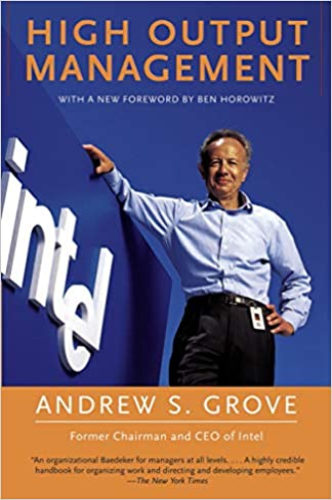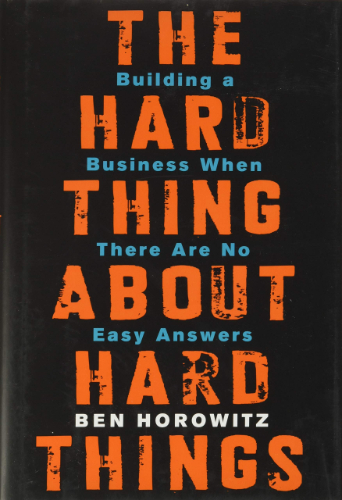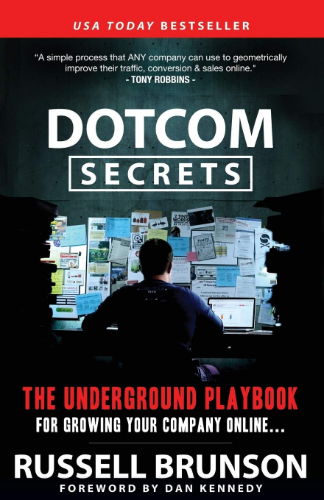Getting Things Done: The Art of Stress-Free Productivity by David Allen: Summary and Notes

One sentence summary: Getting Things Done by David Allen is an inspiring and motivating read on the principles of dealing effectively with internal and external commitments.
One Paragraph summary: Getting Things Done is a goldmine of insights into strategies for getting more accomplished with less effort. The concepts put forward are a compilation of more than three decades of discoveries on personal and organizational productivity by Allen. His approach is refreshingly simple and intuitive, providing the systems and tips to achieve profound results.
Favorite quote from the author:
David Allen is the chairman of the David Allen Company and is one of the world's most influential thinkers on productivity. Allen is a keynote speaker and facilitator for New York Life, U.S Navy, World Bank, and the Ford Foundation. He has more than three decades of experience as a management consultant and executive coach. In my opinion, his book is one of the best books for work-life advice and building new mental skills in an age of multitasking and overload. Allen's work has been featured in Fast Company, Fortune, the Los Angeles Times, the Wall Street Journal, Forbes, the New York Times, and many other Publications.
Allen’s philosophy can be summarized as follows: The goal is to capture all things that need to get done no matter their size or whether they happen now or in the future and practicing decisions that develop into action plans to achieve set goals. It is a long and detailed process that I have summarized below.
Main takeaways from Getting Things Done: The Art of Stress-Free Productivity by David Allen
-
The art of getting things done
-
The ready state
-
Dealing effectively with internal commitments
-
The real work of knowledge work
-
Managing Action
Lesson 1: The art of getting things done
A person can have an overwhelming number of things to do and still function productively. This is possible through an operational style critical for anyone experiencing an overextended situation.
The system involves:
-
Capturing all things that might need to get done in a logical and trusted system outside one's head and mind
-
Generating a workable inventory of next actions that can be implemented at the moment
-
Recognizing multiple levels of commitment at any point in time and coordinating the content
To achieve this healthy, high-performance state, one must modify their habits to perform optimally in meaningful endeavors.
>"We can never really be prepared for everything which is wholly new. We have to adjust ourselves and every radical adjustment is a crisis in self-esteem; whenever we undergo tests, we need to prove ourselves. It needs subordinate self-confidence to face drastic changes without inner trembling."
Lesson 2: The ready state
A ready state is what martial artists refer to as “a mind like water” and athletes “the zone.” Accomplishing this operational style results in clear mental space with nothing pulling or pushing unproductively. Allen refers to the ready state as a condition of working, doing, and being where the mind is clear and constructive things are happening. This is necessary for anyone wishing to maintain balance and consistent positive output in work and our lives.
To define this position of perfect readiness, Allen gives an analogy of water.
"Imagine throwing a pebble into a still pond, the water response is appropriate to the force and mass of the input before it returns to calm. It does not overreact or underreact.”
According to Allen, water is what it is and does what it does. It can overwhelm, but it is not overwhelmed. It can be still, but it is not impatient. It can be forced to change course, but it is not frustrated.
Acting like water is a path to achieving balance and relaxation. It allows you to clear the mind and become appropriately responsive.
Lesson 3: Dealing with internal commitments
“You must use your mind to get things off your mind” — David Allen
Allen says that most of the stress that people experience comes from inappropriately managed commitments they make or accept. He makes a very important point on open loops. These are commitments made with oneself without realizing that they are being tracked by a less-than-conscious part of one's self. These are “incompletes “and are pulling attention that doesn’t belong where it is. Open loops can include really big to-do items like “End world hunger” to the tiniest tasks such as “Replacing a porch light bulb.”
Per Allen, the basic requirement for managing commitments is the implementation of some basic activities and behaviors. These are:
-
Anything you consider unfinished must be captured in a trusted system outside your mind. He calls this a "collection tool" that you know you'll come back to regularly and sort through.
-
Collective superintelligence Clarifying exactly what your commitment is and deciding what you have to do is the second step towards fulfilling it.
-
Once you’ve decided on all the actions that need to be taken, you must keep reminders of them organized in a system that you’ll review regularly.
Lesson 4: The real work of knowledge work
Allen explains a profound operational principle called knowledge work. He explains that “you have to think about your stuff more than you realize, but not as much as you are afraid you might.” In knowledge work, the task at hand is not given but has to be determined. Knowledge work implies thinking in a concentrated manner to define desired outcomes, and the requisite next action is and is the most effective means available for making wishes a reality. Until thoughts have been clarified and decisions made, the resulting data has to be stored in a system you know you can access and think about when you need to. Your brain can’t give up the job.
Allen says that you can fool everyone else, but you can't fool your mind. It knows whether you've come to the conclusions you need to, or whether you've put reminders in a place that you can trust to resurface appropriately within your conscious mind.
On this, Allen has a quote from Horace
“Rule your mind, or it will rule you.”
Research has now proven that a significant part of your psyche cannot help but keep track of your open loops. It keeps track not as an intelligent, positive motivator but as a distractor from anything you need to act upon or think about, diminishing your capacity to perform. Having things whose worth you haven’t determined will simply add stress to your mind and work life.
Lesson 5: Managing action
Allen explains that before achieving a standard operating procedure, one has to get in the habit of keeping nothing on their mind. According to him, if:
-
You don’t manage five minutes, you’ll wind up with six
-
You don’t manage information overload, you could walk into a library and die, or the first time you connect to the web, you’d blow up
-
You don’t manage priorities, you have them
Instead, the key to managing all of your obligations is managing your action. Allen insists managing action is the prime challenge. The question is always about making appropriate choices about what to do at any point in time. The real work is to manage our actions. Most projects seem overwhelming and are overwhelming because you can’t do a project at all! You can only do an action related to it, and few people understand this. Many actions require only a minute or two, in the appropriate context, to move a project forward. Allen discusses how a bottom-up approach is effective and valuable. Applying the bottom-up approach would mean starting with the most mundane, ground floor level of current activity and commitments.
“The beginning is half of every action” – Greek proverb.
Allen assures that an immediate sense of freedom, release, and inspiration naturally come to people who roll up their sleeves and implement this process. You'll be better equipped to undertake higher focused thinking when your tools for handling the resulting actions for implementation are part of your ongoing operational style.
Wrap Up
Getting Things Done: The Art of Stress-Free Productivity by David Allen meets the expectation of its title. Allen offers tips on building new mental skills in an age of multitasking and overload. His productivity principles are rooted in big ideas but are also imminently practical. The main idea is getting things done, and as a true skeptic of most management fixes, I have to say, David's program is a winner.
You can complement this book with Managing Oneself The Art of Stress-Free Productivity or the Getting Things Done: The Art of Stress-Free Productivity
Who Would I recommend the Book To?
Anyone who likes to get things done effectively and efficiently should read this book. You can apply knowledge and skills from this book for immediate results.
GET THE BOOK ON AMAZONRate this book!
This book has an average rating of 5 based on 2 votes.









































